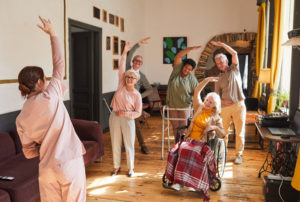
5 Ways to Get Seniors Ready for Spring
Spring is a season of renewal and rejuvenation, but for seniors, it can also bring some unique challenges. From changing weather patterns to seasonal allergies,
Assisted Living & Memory Care

Spring is a season of renewal and rejuvenation, but for seniors, it can also bring some unique challenges. From changing weather patterns to seasonal allergies,

It can become increasingly difficult for elderly adults to maintain healthy diets during the aging process. Medications and physical impairments can cause complications with the

Whether you’re sending emails or shopping online it’s essential to keep safe while browsing the internet. Unfortunately, scammers tend to target the seniors due to

The Holidays have a magical way of bringing friends and family together. Here are some of our favorite pastimes for the whole house to enjoy.

The Holidays have a magical way of bringing friends and family together. Here are some of our favorite pastimes for the whole house to enjoy.

Here are some helpful tips to prevent isolation and loneliness for seniors and leave your loved ones feeling merry and bright throughout the holiday season.

Here are some great ways to stay involved with your grandchildren as they gear up for life in a new grade. We’ve also included a checklist so you can print this off at home and keep track of your efforts.

Holiday Depression and Older Adults The holidays can be an exciting and joyful time for many people – decorating the tree, shopping for gifts, attending